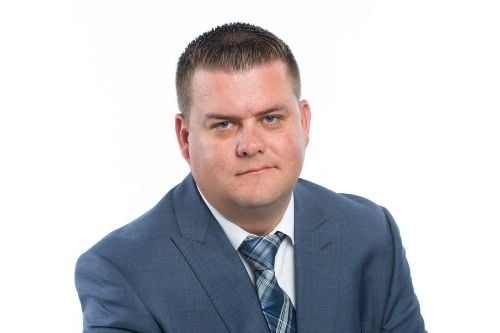

The COVID-19 pandemic has impacted both the frequency and severity of property damage claims. With most Canadians working from home to prevent transmission of the coronavirus, some commercial properties have been left idle for almost a year. This has led to an uptick in the severity of property damage claims because issues have been left to linger and grow. Even seemingly innocuous things like a minor leak from a water cooler or an overflowing drain can cause costly claims if they’re not detected and mitigated quickly – a difficult feat when commercial buildings are left empty.
“In terms of claims frequency, we’ve definitely had more calls this year for damage relating to crime,” said Jim Mandeville (pictured), senior project manager, large loss North America, at FirstOnSite Restoration. “Breaking and entering and vandalism claims are definitely up, especially in sections of downtown cores, where they currently look like a ghost town, and in some industrial areas where there are no people around. When the economy goes down in combination with having fewer people around, unfortunately there will always be that segment of the population that takes advantage. So, we’re certainly seeing an increase in that portion of our business.”
FirstOnSite Restoration partners with insurance organizations across Canada to provide disaster remediation, restoration and reconstruction services. Oftentimes, FirstOnSite really is the first party on site when a claim event occurs, giving Mandeville and his team a unique perspective on how the pandemic has impacted claims management and responses.
“Our relationship with insurers has evolved somewhat during the pandemic,” Mandeville told Insurance Business. “Just because of the travel restrictions and the social distancing measures, a lot of insurers are trying to minimize how much exposure their typical field staff would have to loss locations. Of course, they’re not walking away from insureds or leaving them in the lurch, but they’re trying to protect their people. Since we have to be there to do the clean-up anyway, we’re generally the first set of eyes and ears on a claim. We’re good partners – we’ve been working closely with the insurance industry for decades – this is just a natural evolution in our relationship, which has been caused by the pandemic.”
FirstOnSite was not immune to operational challenges caused by the COVID-19 pandemic. As a business that relies on its ability to deploy large numbers of people in a short amount of time to a specific location, FirstOnSite had to make some adjustments to its policies and procedures in order to be in compliance with new health and safety requirements, social distancing, and ease general concerns about large groups of people congregating in one place at one time.
Read more: How to protect idle business properties
“We’ve had to do things like rotate our crews for shorter shifts,” Mandeville commented. “Where we might have had 50 people working at one location during the day, we now have fewer people working together on three different shifts. In that case, if there is an exposure to COVID-19, we only potentially lose one shift worth of workers, and we can continue on with the project. We’re also facing issues with simple things, like only being allowed to have a couple of people in an elevator together at the same time. While seemingly insignificant, that’s really inhibiting work in high-rise locations, and we’ve had to plan around it.”
Having a robust management plan has helped the restoration business though, Mandeville added. “A lot of these challenges are new to us,” he said. “For example, we might get a phone call from a homeowner or a condo owner who has suffered a water loss in their property, but they’ve just returned home from international travel and are required to self-isolate. Now, we’ve got to look at potentially having that client vacate that space prior to us being able to go in and mitigate the damage. We’re doing our best to work through challenges like that when we come up against them.”
